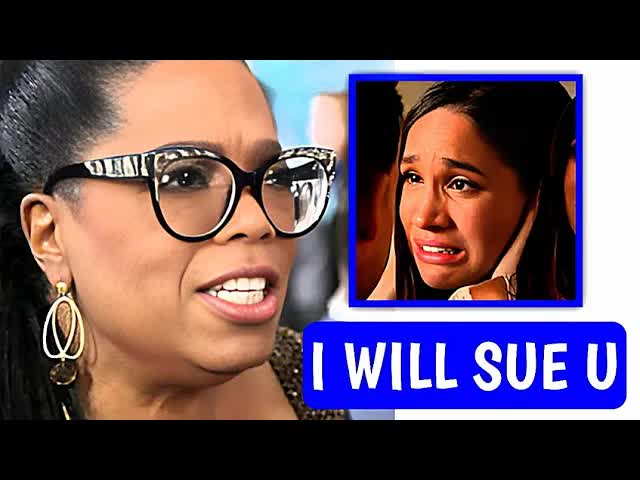In a world captivated by the lives of royalty, Prince Harry‘s recent memoir, “Spare,” has shed light on the emotional challenges he has faced, particularly regarding his mental health.
The book not only chronicles his personal journey but also raises intriguing questions about the role of media mogul Oprah Winfrey in his life.
Did she serve as a therapist to Harry during his time of need?
While she denies this claim, the public remains fascinated by their connection and the impact it may have had on his healing process.
Within the pages of “Spare,” Harry reveals the unseen drama that unfolded behind palace walls.
He candidly discusses the profound grief he experienced following the death of his mother when he was just twelve years old.
For Harry, navigating royal protocols felt surreal and emotionally detached.
This leads us to ponder: what becomes of a young boy who is compelled to suppress his sorrow?
Could this pivotal moment have ignited Harry’s quest for therapy and self-discovery?
The explosive 2021 interview with Oprah Winfrey marked a significant turning point for both Harry and Meghan Markle.
Their revelations about the struggles they faced within the royal family sent shockwaves through society.
Meghan opened up about her own mental health battles, while Harry shared his emotional distress.
This begs the question: did Oprah’s interview style provide a therapeutic experience for them?
Although she insists she wasn’t acting as a therapist, the nature of their dialogue certainly gave rise to speculation.
Harry’s narrative dives deep into the healing powers of therapy, which he likens to peeling away layers of an onion.
Through therapy, he confronted long-buried anger and childhood traumas.
His willingness to discuss these issues openly is commendable, yet it also prompts us to consider: was his embrace of therapy a radical departure from royal norms?
The memoir also highlights the strained relationship between Harry and his brother, Prince William.
Once inseparable, their bond has been severely tested by Harry’s marriage to Meghan and his decision to step back from royal duties.
In a particularly shocking revelation, Harry recounts a physical altercation with William, after which he immediately sought the counsel of his therapist.
This incident raises questions about whether William truly understood Harry’s need for support or if he viewed it as a sign of being brainwashed by therapy.
Another compelling aspect of “Spare” is Harry’s account of the infamous rift between Meghan and Catherine, Princess of Wales, over a flower girl dress.
Media narratives suggested that Meghan made Catherine cry, but Harry presents a different perspective.
He shares that Meghan was the one left upset, while Catherine attempted to mend the situation.
This brings to light the role of media in shaping perceptions—how much of the tension was genuine, and how much was simply sensationalized?
Harry’s mental health journey resonates with many readers, showcasing the struggles he faced, including bouts of explosive anger directed even at Meghan.
His experience illustrates that therapy is a gradual process, often requiring individuals to confront uncomfortable aspects of themselves.
As we read about his journey, we can’t help but wonder: how many of us carry hidden pain, stifled by societal expectations?
As discussions about Oprah’s involvement continue, one must consider whether she served merely as an interviewer or acted as a trusted confidante.
While she emphasizes she did not play the role of a therapist, her longstanding advocacy for mental health suggests a deeper connection.
Could it be that her empathetic nature provided a safe space for Harry and Meghan to express their truths?
Harry’s internal conflict between royal obligations and personal freedom is another theme explored in “Spare.”
He grapples with the weight of tradition while yearning to carve out his own identity.
Therapy illuminated for him the necessity of breaking free from the constraints of royal life—a struggle many can relate to when faced with similar choices between familial duty and personal happiness.
Life outside the palace has been a mixed bag for Harry and Meghan.
They have encountered numerous challenges but have also achieved significant milestones on their own terms.
As Harry reflects on his experiences, one can’t help but question whether their story will ultimately reshape the monarchy or serve as a cautionary tale for future generations.
Through “Spare,” Harry emerges not only as a prince but as a champion for mental health awareness.
His narrative encourages open conversations about emotional struggles, showing that even those born into privilege encounter significant hurdles.
By sharing his truth, Harry aims to foster empathy and understanding, reminding us all that vulnerability is not a weakness but a strength.
As we digest the revelations within “Spare,” it becomes evident that Harry’s legacy is one of courage and resilience.
His journey invites us to reflect on our own experiences with mental health and to challenge the stigma that often surrounds it.
In doing so, he not only redefines what it means to be royal but also inspires others to seek help and embrace their own stories.










